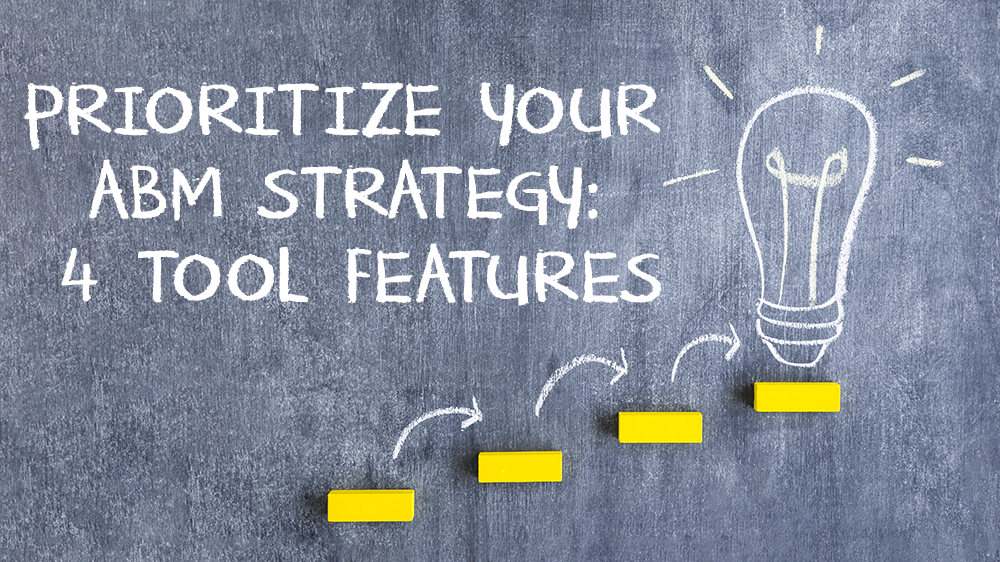
The stage is set for Account Based Marketing to continue its takeover of B2B marketing budgets in 2019. More personalization in marketing and sales as well as autonomy in data storage and analysis gives companies the ability to be successful with what they may have right in front of them.
According to 2017 research done by Brafton, ABM delivers 97 percent higher ROI in comparison to other marketing strategies. At the time of the study, almost 80 percent of companies surveyed stated that they have a ‘targeted account strategy,’ but only about 20 percent of B2B brands have ABM specific strategies. About a year later DemandGen Report’s 2018 State of Account-Based Marketing predicted 64 percent of companies planned to up their ABM investments.
Whether your organization is looking to pivot, optimize, or begin working on an ABM strategy, a quick pulse on the state of your tool shed might be a good place to start. The features of these top ABM softwares and platforms may suggest what is important to prioritize when it comes to your overall ABM strategy.
Key Feature #1: Data accuracy and automatic insights.
Tech: InsideView
Simply put, data accuracy is at the core of successful ABM. This is, however, more than having a good feeling your lead’s self-provided data is up to date or even utilizing trusted leads from a third-party tool. Is your data a precise matrix of account and contact-level information? Is it compliantly collected? Data accuracy should make you confident that you know how your contacts behave with content. It gives clues to organization structures and ultimately aids in creating and pushing the right content to the right people based on your ideal company profile.
Key Feature #2: Solid website visitor tracking.
Tech: Leadfeeder
This product highlights the significance of transparency in your strategy (i.e., Reporting). At the top of the funnel, centralized, well-analyzed reporting can prove ROI or at the very least contribute to multi-channel attribution analysis (see Key Feature #4). On the other hand, missing web insights can cause confusion and make your ABM efforts look futile.
Key Feature #3: AI-enabled behavior predictions.
Tech: Demandbase and LeadGenius
Personalization and nurturing are proven to be successful, but how are they scalable? AI features can aid in consolidating data, predicting behavior, continually optimizing, testing, deciding the best way to support the efforts of your marketing and sales teams. Take the AI application a step farther with Natural Language Processing (NLP) and machine intelligence to increase efficiency and accuracy.
Key Feature #4: Attribution reporting in multi-channel attributions.
Tech: Engagio
Even outside of ABM strategy, it is vital to have strong attribution reporting across any channel that accounts will interact with your content. Giving credit to channels and the content they carry for conversions will draw a course to move forward with and steady the ground for testing. For ABM specifically, an account may interact via different channels but also may interact through various contacts. It is even more important that you can point to a consolidated view of touch points your account is making and how they contribute to a conversion.
If your B2B company is implementing an ABM strategy in 2019, you most likely will be investing in out-of-the-box marketing tools, and maybe the ones above. At Solomon Solution, an engagement design firm, not only do we work to scale you martech investments, we develop innovative products to fill in the gaps of your new martech stack. Whether it is to amplify the performance of your existing applications or roll-out new solutions, we deliver and implement tools that introduce or enhance your ABM marketing strategy.

